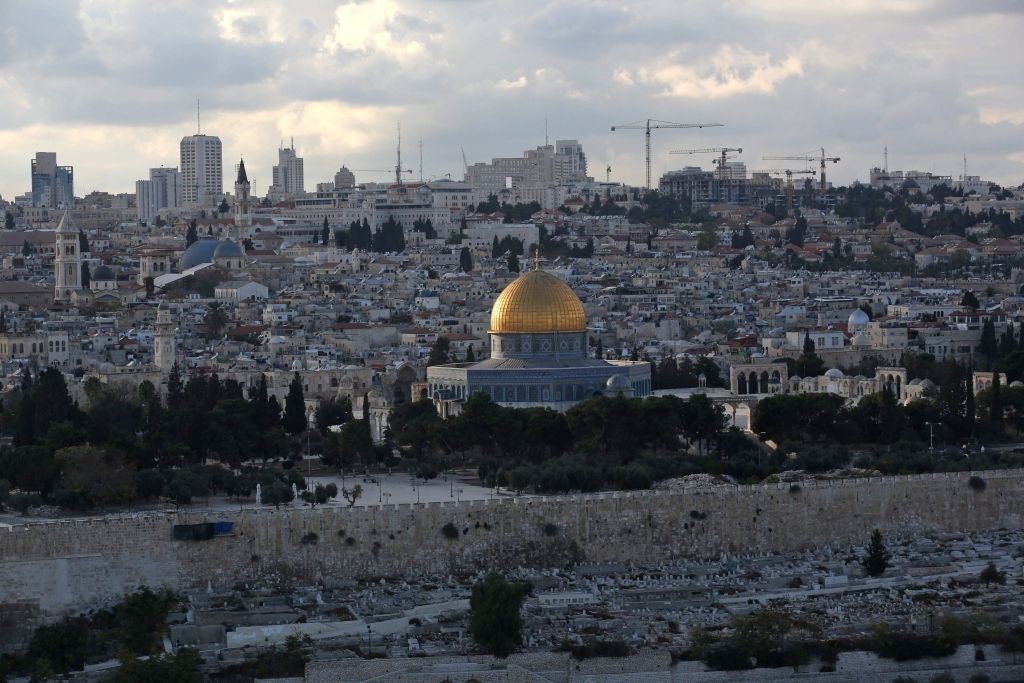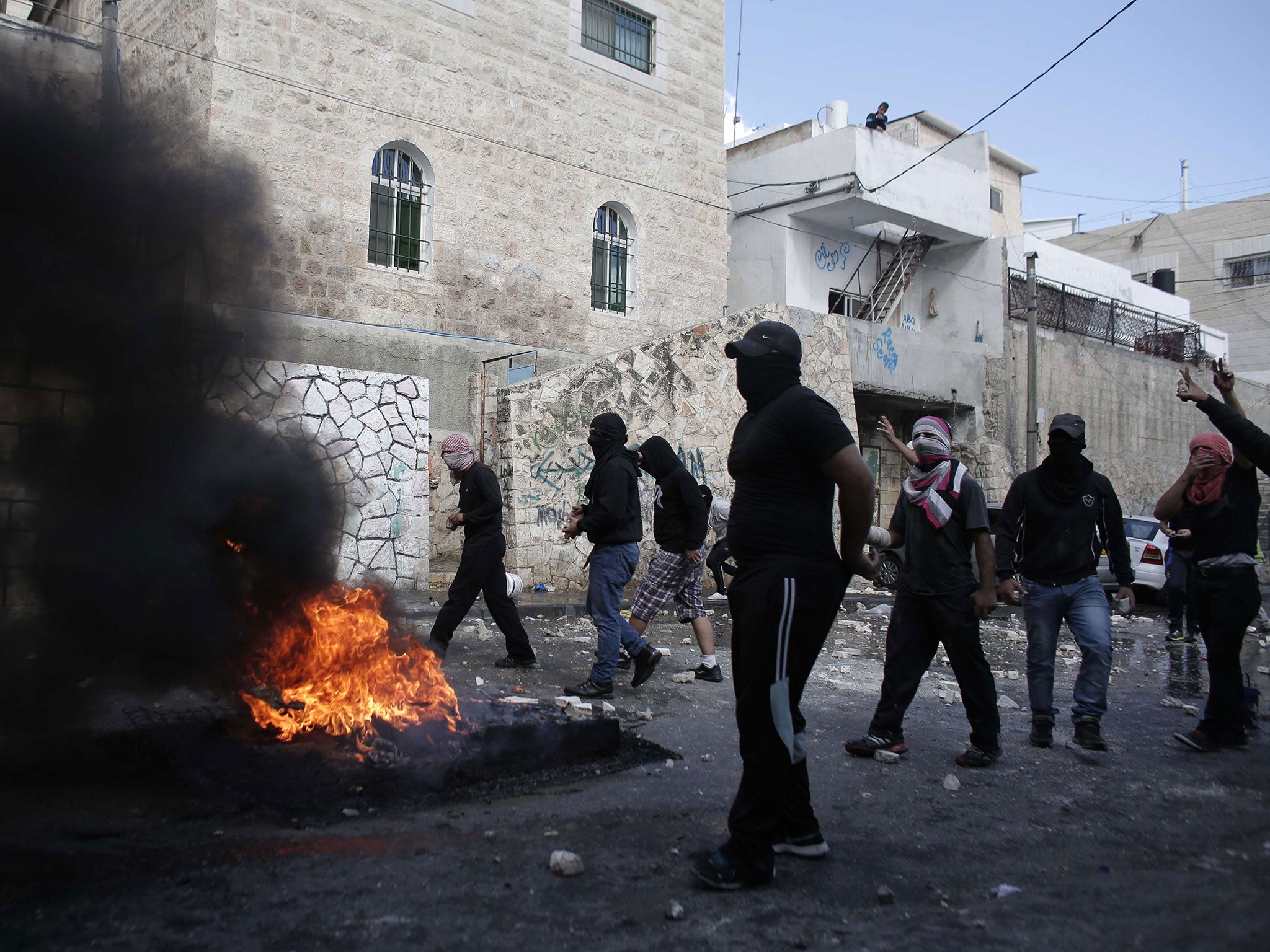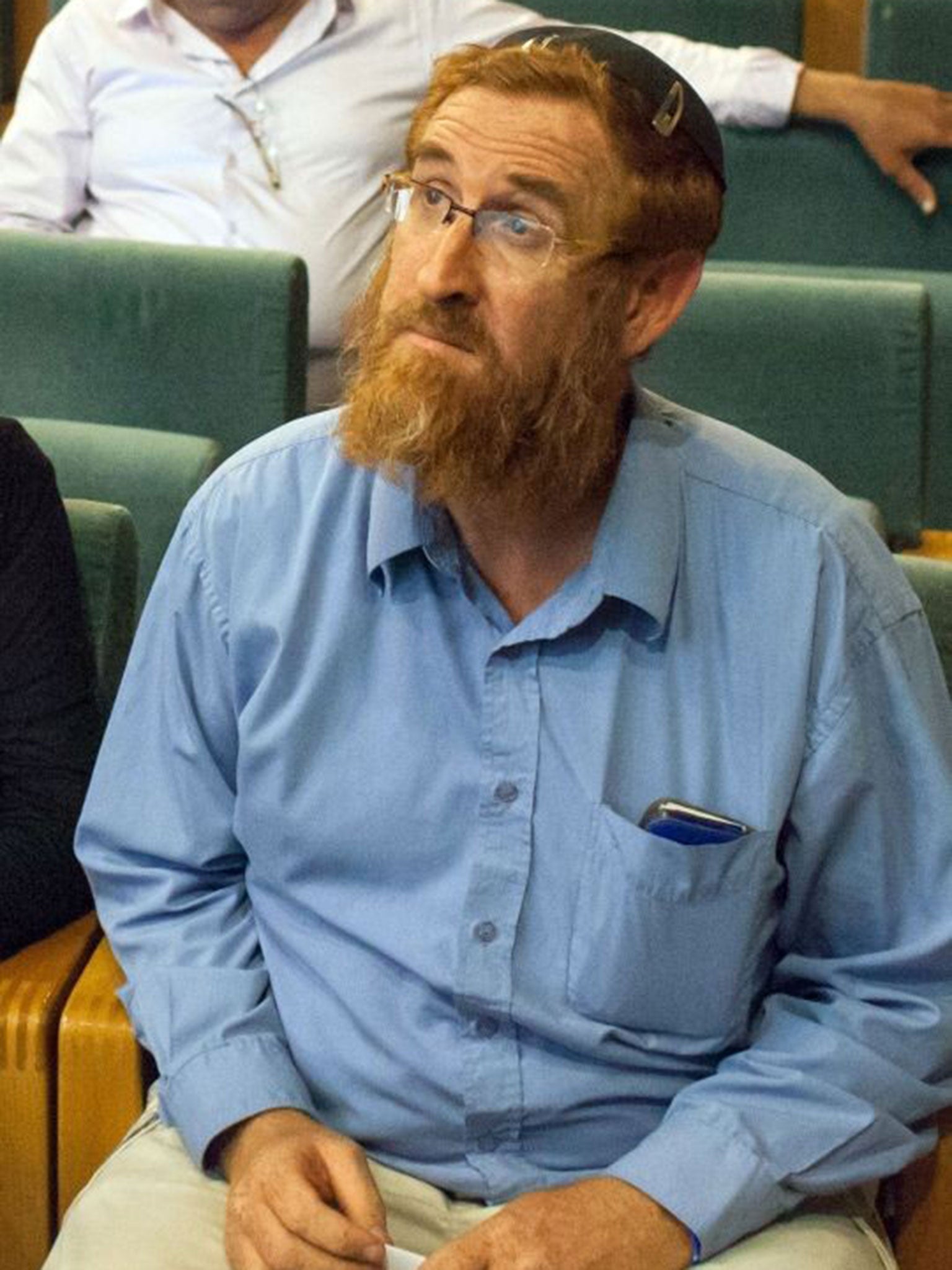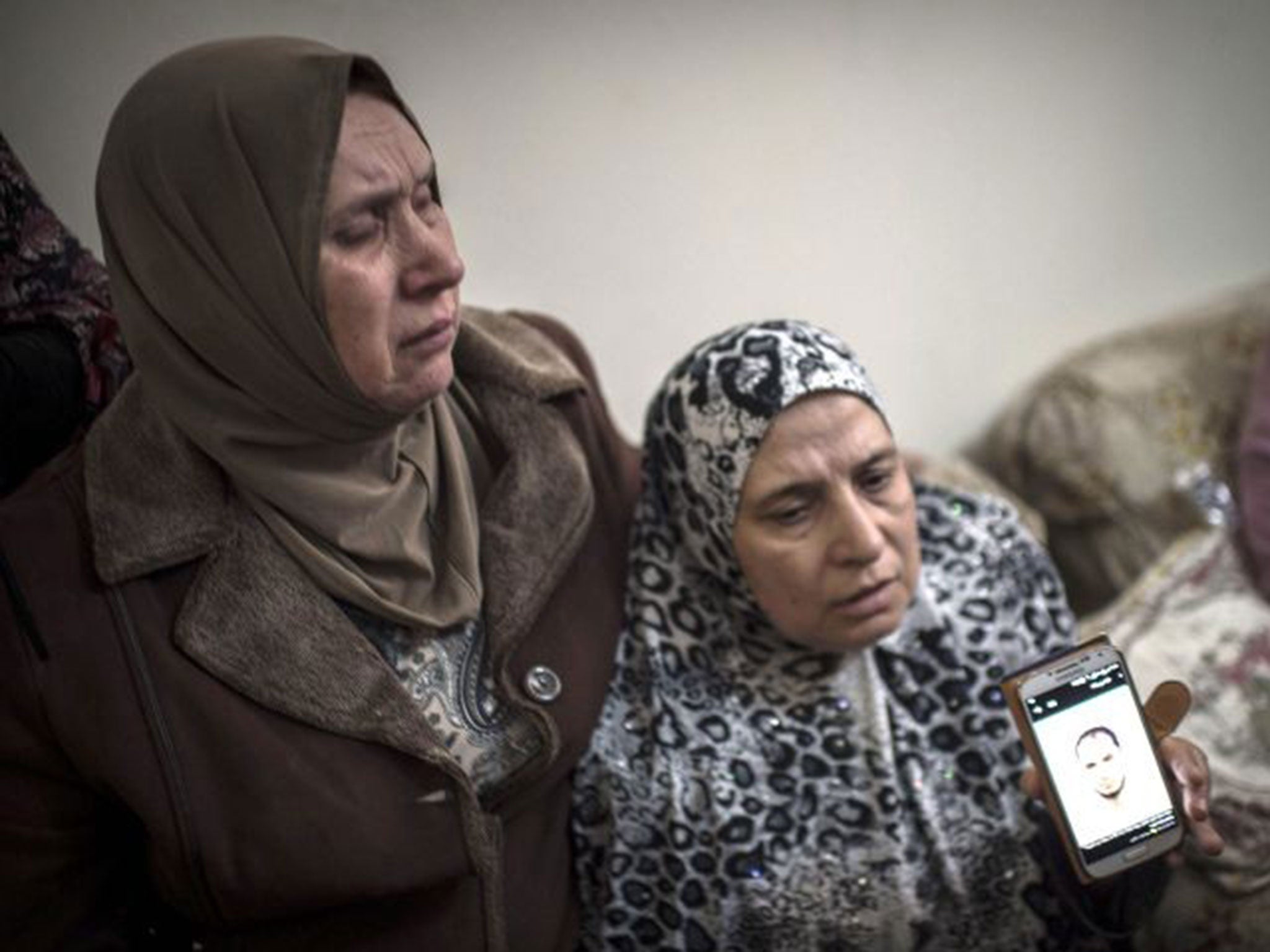Israeli police on high alert as Jerusalem holy site partially reopens
The Noble Sanctuary/Temple Mount was closed after a Jewish activist was shot

Your support helps us to tell the story
From reproductive rights to climate change to Big Tech, The Independent is on the ground when the story is developing. Whether it's investigating the financials of Elon Musk's pro-Trump PAC or producing our latest documentary, 'The A Word', which shines a light on the American women fighting for reproductive rights, we know how important it is to parse out the facts from the messaging.
At such a critical moment in US history, we need reporters on the ground. Your donation allows us to keep sending journalists to speak to both sides of the story.
The Independent is trusted by Americans across the entire political spectrum. And unlike many other quality news outlets, we choose not to lock Americans out of our reporting and analysis with paywalls. We believe quality journalism should be available to everyone, paid for by those who can afford it.
Your support makes all the difference.Police in Jerusalem will be on high alert as the Temple Mount, also known as the Noble Sanctuary, is reopened this morning after the shooting of a Jewish activist.
The heavily guarded site will only be open to men over the age of 50 and women of all ages in a move police said aimed to prevent demonstrations.
The 35-acre compound is the holiest site in Judaism and contains the al-Aqsa Mosque - the third holiest site in Islam – and the Dome of the Rock.
Israeli authorities closed off the sensitive site on Thursday for the first time in 14 years following the attempted assassination of Yehuda Glick, who had campaigned for greater Jewish access to the area.
His suspected attacker, Moataz Hijazi, was later shot dead by police, sparking angry protests in the Abu Tor district of Jerusalem.

The Palestinian President, Mahmoud Abbas, called the closure of the holy site a “declaration of war”, while Israeli Prime Minister Benjamin Netanyahu called the shooting of Mr Glick an “act of terrorism”.
International politicians called for calm as the crisis threatened to further deteriorate Israel-Palestinian relations after faltering peace talks.
John Kerry, the US Secretary of State, said: “It is absolutely critical that all sides exercise restraint, refrain from provocative actions and rhetoric, and preserve the historic status quo on the Haram al-Sharif/Temple Mount - in word and in practice.”
It is open to Jews and followers of other religions as visitors but only Muslims are allowed to pray at the site.
Mr Glick is a leading voice in efforts to allow Jews to pray inside the mosque compound but some Muslim worshippers view Jewish prayer there as a provocation, fearing that Jewish extremists are plotting to take over the area.
US-born Mr Glick made the same accusation towards Muslims in an interview with the Associated Press, saying: “The more extreme Islamist organisations are taking over and if we don't stop them early enough, they will take over the entire Jerusalem.”
He remains in hospital but his condition was said to be improving on Thursday night.

The contested site lies in East Jerusalem, which was captured by Israel in the Six-Day War of 1967 and remains a focal point of the Arab-Israeli conflict as the Palestinian Authority continues to claim sovereignty.
It is a flashpoint for violence when tensions rise in Israel and the Occupied Palestinian Territories and has seen angry protests over the summer.
The shooting was the latest violence in Jerusalem, coming just days after a three-month-old Israeli-American baby girl was killed when a Palestinian motorist drove his car into a crowded train station.
As well as tensions following the 50-day war in Gaza earlier this year, there is anger over Israel’s plans to press forward with the construction of Jewish settlements in the largely Muslim East Jerusalem.

Tobias Ellwood, minister for the Middle East, said: “The UK condemns the Israeli government’s announcement this week to advance plans for 1,060 new housing units in East Jerusalem.
“This is an ill-judged and ill-timed decision which makes it harder to achieve a two state solution with Jerusalem as a shared capital.
“Such announcements make it more difficult for Israel’s friends to defend it against accusations that it is not serious about peace.”
On Thursday, Sweden formally recognised a Palestinian state, prompting Israel to withdraw its ambassador for Stockholm.
Additional reporting by AP
Join our commenting forum
Join thought-provoking conversations, follow other Independent readers and see their replies
Comments